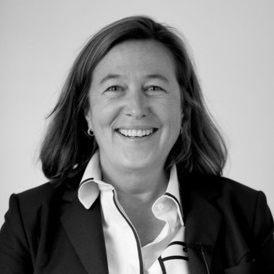3 Questions for HiSum Speaker Leslie Saxon
This post is part of an ongoing series profiling speakers for our upcoming Health Innovation Summit.
Dr. Leslie Saxon is the Chief of Cardiovascular Medicine at the Keck School of Medicine of USC and the Director of the USC Center for Body Computing. She specializes in the diagnosis and treatment of arrhythmias in patients with congestive heart failure and is an expert on the diagnostic and data potential of marrying smartphone tech with heart monitors.
You have said that patients being able to continuously interact with their data and their providers is one of the most important modern day civil rights issues.
People on the network live longer. We have studied this issue extensively at the USC Center for Body Computing. Wireless technology can allow patients to participate in their care and learn themselves and become true partners in their own care (and the care of their loved ones). We are not living in the time of Hippocrates. In 2012, segregating patients from their data just doesn’t work for patients or their doctors. Let’s use the network to help people, especially the billions of people worldwide without access to healthcare.
How did you first get excited and involved in digital health technology?
The Web. When the Web “was born,” I was living in San Francisco and there was all of this excitement and hope around it. Being a physician, I saw the remarkable opportunities to extend medical expertise across large numbers of patients. Unfortunately, the Age of the Internet/Web has missed medicine in many significant ways. That’s starting to change.
You were vegan for a month. How did you decide to do that and would you recommend it to others?
Over the years, as a cardiologist, I have had a handful of patients who experience heart attacks even though they don’t have the traditional risk factors of high blood pressure or cholesterol or family history. For years these patients have asked me about the benefits of a vegan diet. I studied the topic. There are not any large trials focusing on a vegan diet, but there are some really impressive examples of dramatic regression of vascular disease with a vegan diet. That was the medical reason, but I also wanted first hand experience so I could discuss it with my patients. I felt like it would make me a better doctor because I could relate to my patients. I definitely felt good on the diet but it was mentally strenuous, time-consuming, and difficult when I traveled. I enjoyed it mostly because it made me think about food in different ways, and create new food memories. The experience was also analogous to our work at the USC Center for Body Computing—we like to look at problems from different and creative angles so we understand the different issues. I am not a vegan, but I have altered my diet for the better, and I now participate in a farm-share delivery service. And, yes, I would recommend the diet to patients at high risk for or who have had cardiac events.
Join us and hear more from Dr. Leslie Saxon on her panel, “Can QS go Mainstream?”, at Health Innovation Summit.
Do you have you have any more questions for Dr. Saxon? Share them below and we will ask her on August 28th.


